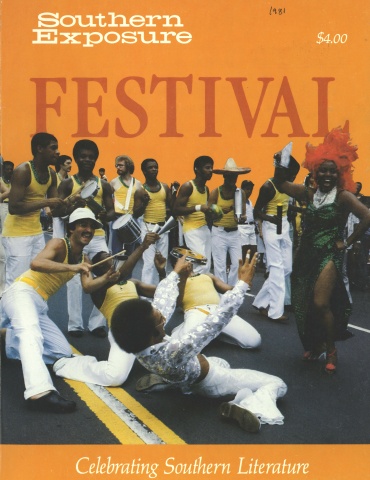Southern Gothic

This article originally appeared in Southern Exposure Vol. 9 No. 2, "Festival: Celebrating Southern Literature." Find more from that issue here.
For Carson McCullers and Bertha Harris of Fayetteville, NC
By Minnie Bruce Pratt
September 11, 1980
In my room are six windows
and a mirror big enough to walk through.
Then I see myself sit on a yellow bed and beyond
one window open into the green cavern of a tree.
In this mirror I have watched my face twist
with sorrow dangerous as a nest of coral snakes,
my body writhe with a lover, our arms,
our thighs silver in the moonlight, like eels
hurrying over a dewy meadow to the sea.
All the while the tree in the mirror trembled
with veins of ice or knotted itself into
fists of white flowers. Now berries are scattered
like red nipples over the yellowing skin of its leaves.
It is time for me to stand and look with a practiced
eye
through the old glass that wavers behind me.
In this window I see the customary street, the lines
and fences that have caught the young woman
next door.
She lives like a rose-of-sharon tree set in an iron
pot.
I fear like her to be contained, but I know
at least two women before me in this town
have made an art of being strange, wandered
like wolves in its streets hunting for the wildness
hung between the starched clothes stiff on the line.
Like them I look with my eyes’ mirrors to see
the dwarfed housewife of forty years in the dawn
calling her cats to her like a gypsy queen,
the ponderous woman with elegant hands in
the sun
who roots up the last rose from her lawn
to make a jungle with fern and banana trees,
at the night end of the street the ghost of two girls
whose mouths kiss and separate and join again.
I see myself stand on the steps, the bearded lady
my hairy legs ready to run wild over the road,
living like wisteria, gnarled and twisted,
trailing with a lover down the steps
like two purple meteors of wisteria bloom
while to themselves neighbors murmur
how peculiar, how queer.